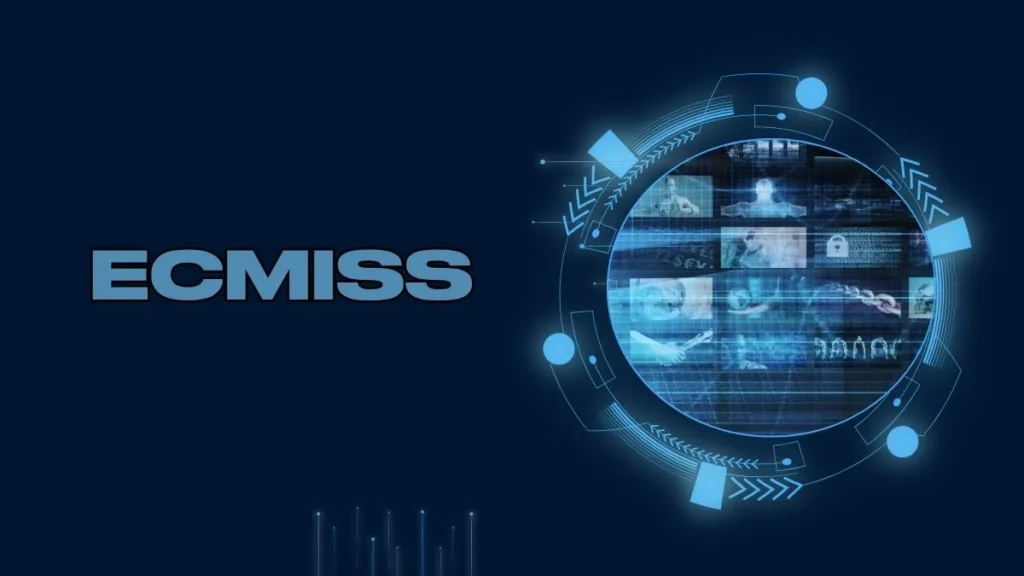The Electronic Case Management Information Sharing System (ECMISS) is a secure, digital platform designed to streamline the recording, tracking, and sharing of case-related information across multiple agencies. Commonly used in sectors like social services, healthcare, law enforcement, and justice, Electronic case management enhances efficiency, transparency, and collaboration by enabling real-time access to case data. With built-in tools for documentation, workflow automation, and role-based access control, Electronic case management ensures that only authorized personnel can view or edit sensitive information.
The Importance of ECMISS in Modern Case Management
ECMISS plays a vital role in modern case management by streamlining workflows, enhancing transparency, and enabling real-time data sharing across multiple agencies. It eliminates inefficiencies caused by isolated systems and manual processes, allowing professionals in sectors like social services, healthcare, and justice to collaborate effectively. With features like automated alerts, secure access controls, and centralized documentation, Electronic case management improves decision-making, reduces delays, and ensures compliance with data privacy regulations—ultimately leading to faster, more coordinated, and client-centered service delivery.
Key Features of ECMISS
1. Case Intake and Triage
Electronic case management simplifies the intake process with digital forms, checklists, and rule-based triage systems that categorize and prioritize cases based on urgency or severity. Automation ensures no case is overlooked, and important triggers are escalated appropriately.
2. Centralized Documentation
Case files, legal documents, medical records, witness statements, photos, and more can be uploaded and organized into digital folders. It ensures version control, metadata tagging, and quick retrieval, which is crucial during audits or legal reviews.
3. Progress Monitoring and Case Timeline
The platform offers timeline views, Gantt charts, and milestone tracking to help users visualize progress and pending tasks. Caseworkers receive alerts for deadlines and scheduled appointments, improving follow-up accuracy.
Benefits of Electronic Case Management Information Sharing System
- Improved Service Delivery: Clients receive quicker, coordinated services due to seamless data availability.
- Greater Operational Efficiency: Automation reduces manual tasks, freeing up staff to focus on core responsibilities.
- Stronger Risk Management: Real-time alerts and audit trails help in proactive risk assessment.
- Data-Driven Decision Making: Analytics empower leadership with actionable insights.
- Enhanced Client Trust: Transparent, timely updates improve client satisfaction and organizational credibility.

Application Across Sectors
1. Social Services
ECMISS has transformed how child protection services, family support teams, and welfare departments operate. Caseworkers can collaborate with schools, mental health counselors, and law enforcement—all within a secure environment—leading to faster interventions and better outcomes for vulnerable populations.
2. Healthcare
In the healthcare sector, it ensures that patient case files are shared securely among hospitals, rehabilitation centers, and insurance providers. It supports interoperability with Electronic Health Records (EHRs) and safeguards patient privacy.
- Managing chronic care patients
- Coordinating mental health services
- Assisting with elder care and rehabilitation
3. Law Enforcement
For police and investigative units, ECMISS offers streamlined case tracking, from incident reports to court proceedings. Evidence documentation, witness statements, and legal files are accessible with appropriate access controls, eliminating delays in criminal justice proceedings.
ECMISS vs Salesforce vs Tyler Technologies
| Feature | ECMISS | Salesforce Case Management |
| Sector Focus | Social services, healthcare, justice | Nonprofits, social services, customer support |
| Collaboration | Multi-agency, real-time sharing | Internal teams, Salesforce-based ecosystem |
| Access Control | Advanced role-based (RBAC) | Custom user roles and permissions |
| Security & Compliance | HIPAA, GDPR, CJIS | HIPAA, GDPR (configurable) |
Challenges in Implementing ECMISS
- Change Management: Transitioning staff from legacy tools to digital systems may require extensive training and cultural shifts.
- System Integration: Aligning ECMISS with existing infrastructure like EHRs, CRM tools, or legacy case databases can be complex.
- Compliance & Governance: Ensuring full legal and ethical data governance remains a constant responsibility.
- Initial Investment: Setup and onboarding costs may be significant for large agencies.
Addressing these challenges requires strategic leadership, continuous staff support, and a phased implementation plan with clear KPIs.
The Future of Case Management
The future of ECMISS is the inclusion of more sophisticated methodologies, such as the introduction of artificial intelligence, predictive analytics, and natural language processing to engineering decisions and automating mundane activities. The next iterations could present more intelligent alerts, risk assessment, and momentary data insights. With enhanced interoperability, the ECMISS will become the hub of cross-sector cooperation that will ensure efficiency, accountability, and still manage to keep the data safe, a process that will eventually change the ways of handling complex cases across agencies.
FAQs
Q1: Is it compatible with existing EHR or justice platforms?
Yes, it is designed to integrate via APIs and interoperability protocols.
Q2: Can ECMISS be customized for small agencies?
Absolutely. It is modular and can be tailored for different organization sizes and workflows.
Q3: How is data protected in ECMISS?
The platform uses RBAC, end-to-end encryption, and complies with HIPAA, GDPR, and CJIS standards.
Final Thought
CMIS is not a digital tool alone; it is an innovative solution that results in a paradigm shift change on how agencies manage, share, and take action on critical case details. The Electronic Case Management Information Sharing System can facilitate cooperation, make operations more efficient, and bring data security, which builds skills so that professionals can offer timely, informed, and coordinated services. In a rapidly developing digital space, the implementation of such systems as ECMISS is one of the keys to creating a responsive, transparent, and client-focused infrastructure to support the work of the public service in the future.

James Whitaker brings a wealth of knowledge and creativity to content writing across various niches such as health, technology, personal finance, and digital marketing. Known for his ability to simplify complex topics and deliver audience-centric content, he helps brands build authority and trust.

